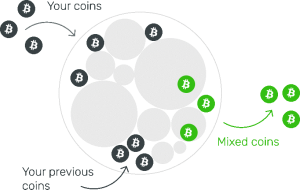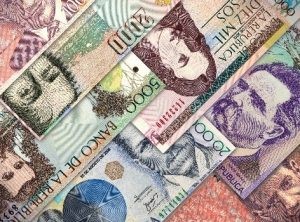Online games and money laundering
Publication date 24-04-2019
By: D. Crijns, AMLC, 2016
During money laundering courses at the AMLC we are often asked how criminals use online games and the payment systems associated with them for money laundering purposes. In this article I will examine the main aspects of this phenomenon.
Generally speaking online games are played on the internet more as a pastime than to earn money, or chips for example, which can then be converted into money. Online games are highly diverse in nature, varying from the (re)enacting of battles (World of Tanks) to games of strategy and role playing (World of Warcraft). The online games I am concerned with here do not include gambling games like poker, casino, betting on sports etc. whereby winning money / objects of value certainly is an important element. These will be discussed in a later article. This background article was also written to provide some clarification in connection with several recent publications.
The AMLC is a knowledge centre of among others the FIOD (Fiscal Intelligence and Investigation Service), OM (Public Prosecution Service) and police, all of whom contribute to the combating of money laundering in cooperation with other parties. If you have any questions, experiences, examples or comments about this article, do not hesitate to contact us at AML.Centre_Postbus@belastingdienst.nl.
Or leave a response with this article!
The Online Gaming World
The online gaming sector is huge and apart from developers and licensees it also includes suppliers of special hardware and a wide range of financial service providers. It is a relatively young sector with an incredibly high level of turnover, which rose from more than $51 billion in 2008 to $92 billion in 2015. According to Pricewaterhouse Coopers this is more than the entire music industry. In the Netherlands alone the sector employs more than 3000 people and has an annual turnover of about € 200 million. Online gaming also has a large and immediate impact on households. For 63 percent of families in the US for example, there is at least one person in every household who spends more than 3 hours a day gaming.

For criminals it is a highly attractive market in which to operate. On this worldwide market it is possible both to earn and to launder money, and it is easy to go into hiding because large amounts of money circulate in a relatively non transparent way. In the rest of this article I will focus primarily on aspects of the online gaming world that may be relevant to or associated with the possibilities for money laundering.
(Financial) values in games
In virtually all (online) games 'values' play an important role. Values are objects that give you access to a higher level in the game for example, or allow you to purchase game components. They may also allow you to buy extra services and more beautiful homes, or make you more powerful. Typical examples of the most important worldwide games are FIFA 2016 which uses 'coins' as values, World of Warcraft which uses 'gold', and League of Legends which awards 'Influence and Riot' points. You can earn these values by carrying out assignments in the game. But you can also purchase them with real money. Apart from these standard methods which the developers had in mind when they created the game, and which therefore tied in with their business model, all kinds of exchange platform soon appeared on the internet which made it possible for players to exchange values among themselves, or to buy and sell them from one another for actual money. The latter is referred to as Real Money Trading (RTM). In spite of the fact that genuine players regard it as cheating, the growth in RTM has been enormous. There are many exchange platforms and Real Money Trading sites on the internet and dark net. In some games it is forbidden to buy game values (outside the game itself). The only risk the player runs for doing so however, is that his or her account may be closed. There is no law against the purchase and sale of game values. The situation is different if you acquire these values by other means (theft for example) or if they are used to facilitate the transfer and relocation of the proceeds of crime. In the latter case there may also be other crimes involved, such as money laundering.
How values are acquired
The normal way of acquiring new game values is to play the game. But the game is not fast enough for those who want to make money by trading in values from the game. Criminals discovered that it was not difficult to gain access to a computer and to the game by means of phishing, Trojans or simply hacking the PC. Once they have gained access, there are several ways in which criminals can acquire game values.
How do they gain access to the game? Basically this is not difficult using the usual phishing techniques such as emails that tempt you to click on a link though which malware is downloaded, thereby providing access to the player name and password. Criminals discovered that it was quite easy to take over a computer in this way and went a step further. They refined the malware so that it also gave access to bank and credit card information, even taking over the player's access to the banking system. After that the simplest thing to do was to empty the bank account by making large or multiple purchases. But they also discovered that they could use the account to transfer illegal funds. By buying game values directly from the account and selling them on immediately to an exchange or RTM site, they could make the money virtually untraceable.
Another way in which game values can be acquired is by 'gold farming', which can be regarded as modern slavery as well as normal gaming. For years large groups of players, especially in Asia, have been playing online games systematically with the sole objective of acquiring game values which can then be sold on. In 2005 there were an estimated 100,000 Chinese engaged in this practice. In some cases special robot software was used, taking over part of the role normally played by humans. In 2011 the Guardian reported that Chinese prisoners were being deployed for gold farming, with the profits going to the government.

Criminals went further however. It was even easier to build a small piece of malware into the game itself, or to use a bug discovered inside the game to infect the computer. One example of this method is known as 'glitching', 'duplication' or 'dubbing', whereby a value purchased on a one-off basis inside the game can be endlessly copied and thereafter sold repeatedly. But if you are willing to go to all the trouble of making changes inside other people's games, you may as well start developing and operating games for yourself. Then all you have to do is build the malware, the gold farming possibilities, the 'dubbing' etc. into the software. Even the most cautious and alert gamers can be fooled by such malware. The computer is infected as soon as the game has been accepted. The disadvantage from the point of view of fraudsters however is that they can easily be traced. Built-in gold farming or duplicating malware makes it possible for any player in the game with access to these 'facilities' to acquire endless amounts of value and to sell that value on, declaring it as legitimate profit or income. For a criminal with illegal funds at his disposal, buying into such a possibility is the perfect way to create a 'legitimate' basis for part of his capital.
The sale
As mentioned above there are two main channels for the transfer of game values. The first is exchange (inside the online game site) of values with other players. No money is involved. The other is using RTM sites, whereby values are exchanged for money. Some sales operate through normal bank payments but there are growing indications on social media that the majority of purchases and sales take place using anonymous means of payment such as Bitcoin. Every RTM site has its own earning model. All can essentially be reduced however to a form whereby a percentage of the traded value (an amount) is withheld. It is vital for such RTM sites to win the confidence of their users and to be very user-friendly. The buyers and sellers must feel sure that their goods and money are being handled securely. For that reason a typical RTM site always looks very professional when it comes to presentation and design. In many cases they provide live support to settle transactions. They also claim high levels of encryption and the use of escrow accounts to guarantee that valuable items or money will not be lost.
Financial settlement using the RTM site

The equivalent value in money associated with purchases and sales through the RTM site (often settled in anonymous, digital currency such as Bitcoin) must ultimately be converted into normal currency. In recent years investigative services have become much better at identifying the owners of digital wallets. At the same time we have seen the emergence of tumblers or mixers of bitcoins ('bitcoin mixers'). These are companies which put bitcoins that have to be converted to normal currency/accounts, or obtained by conversion from normal currency/accounts, through a process which makes it impossible to establish the link between the bitcoins concerned and the final payment. Bitcoin mixers charge a percentage of the converted value for their services.
Opportunities to create legitimacy
We have seen that criminals acquire game values by means of modern slavery (gold mining), illegally taking control of entire game sites or values in the game (using hacking and phishing) and glitching (duplication). In themselves these can be regarded as offences under general criminal law, but there may be so many masking elements involved in the details of the crime that it is more appropriate to regard them as acts of money laundering. We have also seen however that malware software, such as duplication, can be made available (against payment) to third parties, who are then able to give the impression that they acquired normal game values and sold them on. In this way they are able to convert criminal funds into a source of income which has no visible criminal origins.
For a criminal organisation with a game of its own, selling game values to numerous random players who pay for their purchases with anonymous values (prepaid cards, bitcoins etc.) can be a good earning model because it allows you to bring large numbers of fake players into the game so that your (enhanced) profit is nicely legalised. Even less conspicuous is to use actual players and to make purchases (again using prepaid cards etc.) through their accounts (to which you have access as a service provider). You then sell those purchases on to RTM sites before the player notices anything. The player notices nothing, but the game provider (the criminal group) realises extra turnover and profit. Naturally the RTM site is not stuck with these values. The criminals then proceed to buy them back using anonymous methods of payment.
We moved from simple money laundering as a by-product in the first paragraph to money laundering involving an activity specifically set up for that purpose in the second. The aim of the criminal is to have a legitimate explanation for a growth in value.
More possibilities during other phases of money laundering
In conclusion I want to consider another element of money laundering which can be aided by online games. Apart from methods to acquire legitimacy for their illegal funds, money launderers also need ways of moving money and getting it into the financial system. An online game takes place in the digital world and is not linked to any particular place. Criminals seeking to move capital from one country to another can also use the above-mentioned methods. It is easy for a Colombian criminal, for example, who wants to move cocaine profits from the US to Colombia and has the possibility of duplication through glitching, to deal with a number of issues. His problem is that he has to move cash dollars to Colombia and convert them into pesos.
What could be easier than to have his game values purchased by front men in the US through an RTM site using dollars converted in prepaid cards? After that he collects the money on his bank account in Colombian pesos as the perfect player, and if the amounts to be relocated become too large he can always deploy the variant involving his own gaming site established in Colombia, or with Colombian shareholders. Here too the profits or dividends are tidily transferred to the bank account. Essentially money can be transferred to Colombia using a perfectly legal phenomenon such as an online gaming site.

I realise that I have used a lot of technical terms in this article but only been able to raise a few subjects. The discussion was limited to the user possibilities of online gaming sites and how game values can be deployed for money laundering purposes. Do we know everything? Are there more possibilities than the ones discussed above? I am quite certain that there are many more! In future newsletters we will examine certain subjects in greater detail on a regular basis. If there is anything else in connection with online games which I have not described, or experiences from investigations of your own which you would like to share, we would be pleased to hear about it. The fight against money laundering is a joint effort and we like to share knowledge through the AMLC site and this newsletter, but you may also contact AMLC personnel directly if you prefer.
